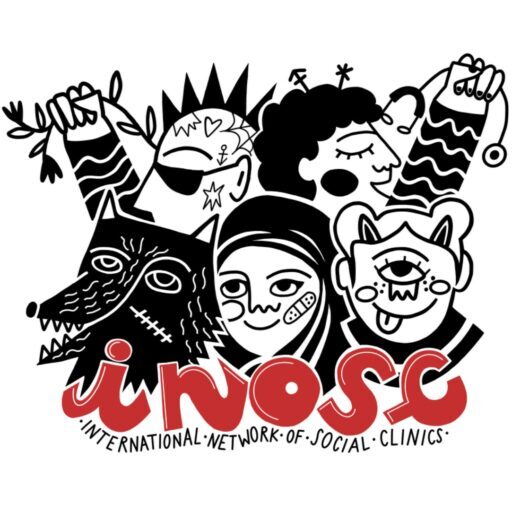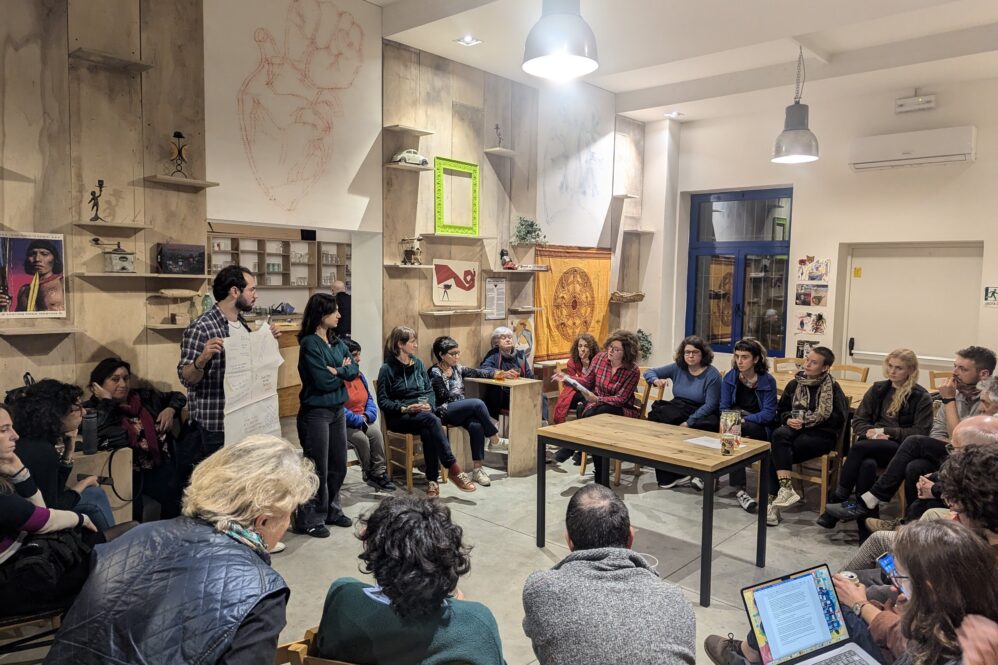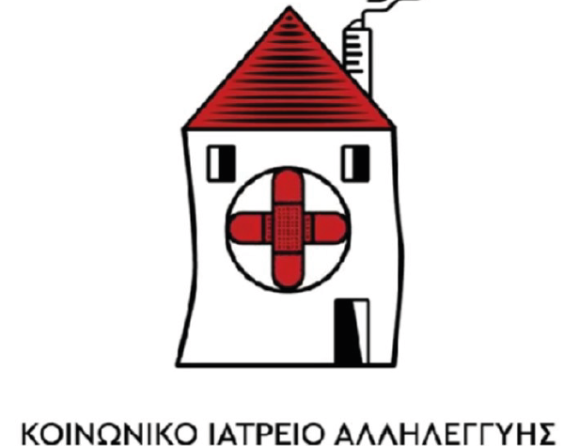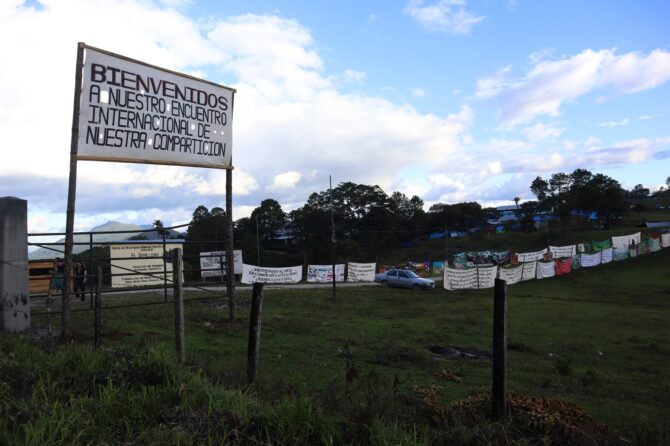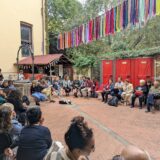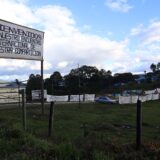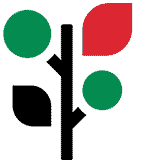Overview and Context
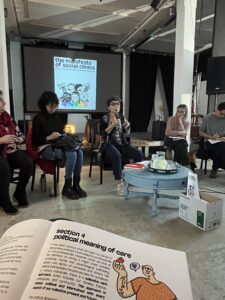 The Manifesto of Social Clinics offers a strong focus on the political link between community and health. The final sentence that closes the Manifesto highlights the importance and the political relevance of a collective approach to health and healthcare: “collective health for healthy communities”. The discussion of this working table asked participants to reflect on this idea. The concept of a “caring community” was central to discussions, highlighting a model of health that extends beyond individual well-being to a collective, interconnected sense of responsibility. The group explored definitions of “community” and the ways collective health transcends traditional, individual-focused healthcare. This expanded perspective emphasizes care as a revolutionary political act that fosters solidarity and counters capitalist individualism, positioning care as a collective, intentional choice aimed at addressing both human and environmental needs.
The Manifesto of Social Clinics offers a strong focus on the political link between community and health. The final sentence that closes the Manifesto highlights the importance and the political relevance of a collective approach to health and healthcare: “collective health for healthy communities”. The discussion of this working table asked participants to reflect on this idea. The concept of a “caring community” was central to discussions, highlighting a model of health that extends beyond individual well-being to a collective, interconnected sense of responsibility. The group explored definitions of “community” and the ways collective health transcends traditional, individual-focused healthcare. This expanded perspective emphasizes care as a revolutionary political act that fosters solidarity and counters capitalist individualism, positioning care as a collective, intentional choice aimed at addressing both human and environmental needs.
Participants discussed that a community is not merely a group defined by geographic boundaries or static characteristics, but rather an evolving and open entity shaped by shared practices of mutual respect, inclusivity, and responsiveness. This fluid understanding of community calls for attention to not only individual needs but also collective needs and interests. Such a community, described as a “community of care,” fosters environments that are rooted in listening, support, and holistic health.
Questions
● What does a caring community mean?
● What do we mean by community?
● What does collective health offer beyond individual health?
Discussion
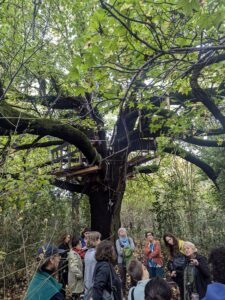 Participants reflected on the dual nature of community, where each individual contributes to, and simultaneously draws from, the collective. This dynamic view emphasizes that while the community supports individual needs, individuals are equally responsible for nurturing the well-being of the collective. For many, this interconnectedness is a conscious political choice, directly opposing capitalist values that prioritize private interests over shared well-being. To act within a caring community is to adopt a political stance that emphasizes solidarity and inclusivity, redefining health as a collective resource rather than a commodity.
Participants reflected on the dual nature of community, where each individual contributes to, and simultaneously draws from, the collective. This dynamic view emphasizes that while the community supports individual needs, individuals are equally responsible for nurturing the well-being of the collective. For many, this interconnectedness is a conscious political choice, directly opposing capitalist values that prioritize private interests over shared well-being. To act within a caring community is to adopt a political stance that emphasizes solidarity and inclusivity, redefining health as a collective resource rather than a commodity.
Some participants voiced concerns over the potential for “community capitalism,” where the social value created by collective care and self-management is at risk of exploitation by capitalist structures. An example discussed was the family system, where individuals may benefit from community support only to return to exploitative environments, trapped within capitalist systems. Despite this contradiction, the group expressed a commitment to confront these challenges, recognizing that nurturing a community of care can itself serve as a form of resistance. In this view, collective health is not only about service provision but also about reshaping the systems and structures in which people live and work.
An expansive understanding of health emerged as central to the conversation. Health, they argued, is not just the absence of disease but includes social, environmental, and economic factors. Ensuring that communities have access to green spaces, nutritious food, and safe living environments is essential to fostering true well-being. The participants urged INOSC to support this broader approach to health, advocating for clinics to adopt a holistic perspective that connects personal health to the health of the community, the environment, and beyond.
Proposals and Future Directions
● Disseminating the INOSC manifesto more widely was proposed as a way to raise awareness of INOSC’s core values and to broaden public engagement. They emphasized the need to educate both community members and healthcare providers on the value of creating environments that support mental, physical, and social well-being.
● Making community health accessible even to those who may not typically engage in political activism. Members suggested promoting small, everyday acts of care that everyone can contribute to, regardless of their background or level of political engagement. These actions, though seemingly minor, can empower people and foster a stronger sense of collective responsibility, making it clear that everyone has a role in building a healthy community.
● Forming a recognizable movement, akin to prominent environmental activism, was also discussed. Establishing INOSC as a well-known advocate for community-based health could amplify its impact on a broader scale. Participants noted the potential of creating visible, impactful campaigns that highlight the role of social clinics in addressing systemic health inequities and supporting community resilience.
● Balancing self-care with care for others. This balance is critical to sustaining engagement within the community and preventing burnout among volunteers and health professionals. A caring community, they argued, is one that nurtures both individual and collective strength, reinforcing resilience and fostering solidarity against the exploitative forces that undermine holistic well-being.
In summary, the “Collective Health for Healthy Communities” working group reaffirmed the vision of creating supportive, inclusive communities where health is a shared, collective endeavor. They advocate for an environment where care is both a political and personal commitment, a stance that re-imagines health as rooted in community, solidarity, and resistance to privatized models of care.
